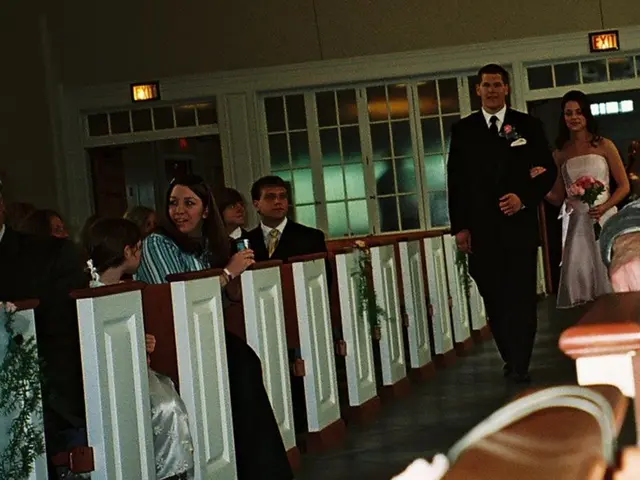Gone but Not Forgotten: Uwe Timm's Memories of World War II
"Military personnel, identified as GIs, approached the residence and rapped on the door"
Uwe Timm, a seasoned author with a penchant for exploring the past, was only five when World War II drew to a close. Born and raised in Hamburg, his works often delve into the Nazi era and its aftermath. In works like "The Discovery of the Currywurst" and "Red," Timm reveals the transformative power of food and politics respectively. "At the Example of My Brother" seeks to understand the motivations behind his brother's decision to join the Waffen-SS, while "Ikarien" paints the vivid picture of post-liberation Germany in May 1945.
Recently, Timm chatted with ntv.de, sharing his vivid memories of the war and its aftermath. As a child in Hamburg, he recalls his earliest memories as being tinged with destruction - fires burning along Osterstraße and flaming curtain scraps floating in the air. The family's apartment was destroyed in a bombing raid in 1943, an event his father, a Luftwaffe soldier, had anticipated from radio news.
The end of the war, which Timm experienced in Coburg, came with a sense of relief yet trepidation. American soldiers, part of the Black Panthers brigade, pushed aside a makeshift barricade on the bridge, and shooting ensued. Soldiers searched the house, uncovering Wehrmacht uniforms of deserters. The adults swore off "Heil Hitler" and the click of heels, a standing reminder of the dark past that had just ended.
Timm remembers the power dynamic shifting during those times. The men, who had always maintained authority with their nasal tones, suddenly became weak, while the women, many of them now employed, gained strength. The term "Zero Hour," reflecting the beginning of a new era, is met with skepticism by Timm, as he believes it was only a partial break from the old ways. The aftermath of the war allowed for a resurgence of old relationships, as many of those who had property managed to reclaim their positions.
The following months were filled with uncertainty and fear, during which many were still on the run. The end of the war, however, was also a liberation, as German soldiers were sentenced to death or forced into captivity. Many Nazi officials and sympathizers were removed from positions of power, albeit amidst growing Cold War fears.
Timm's work continues to grapple with the legacy of World War II, shedding light on both the horrors of the past and the potential for a better future. His unique perspective, derived from his personal experiences and insights garnered through his extensive research, offers a thought-provoking examination of Germany's past and present.
- Uwe Timm, who often writes about the Nazi era and its aftermath, recalls his youngest memories in World War II-torn Hamburg as being marked by destruction, with fires along Osterstraße and floating curtain scraps.
- Following the end of the war, American soldiers, part of the Black Panthers brigade, pushed aside a makeshift barricade on a bridge and shooting ensued, leaving the adults swearing off "Heil Hitler" and the click of heels as a standing reminder of the past.
- The aftermath of the war brought about a resurgence of old relationships, as many who had property managed to regain their positions, despite the uncertainty and fear that still lingered in the months following the conflict.






